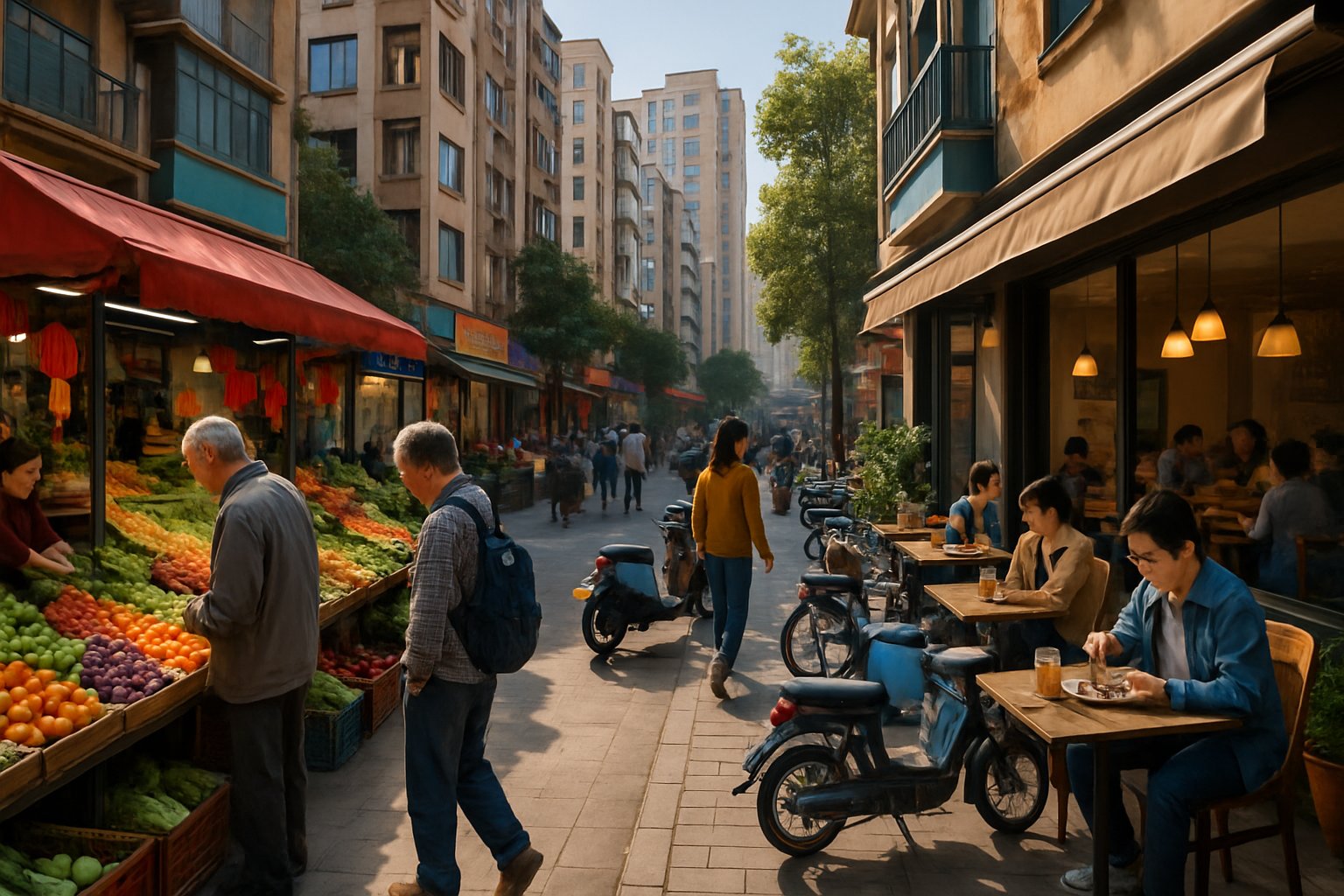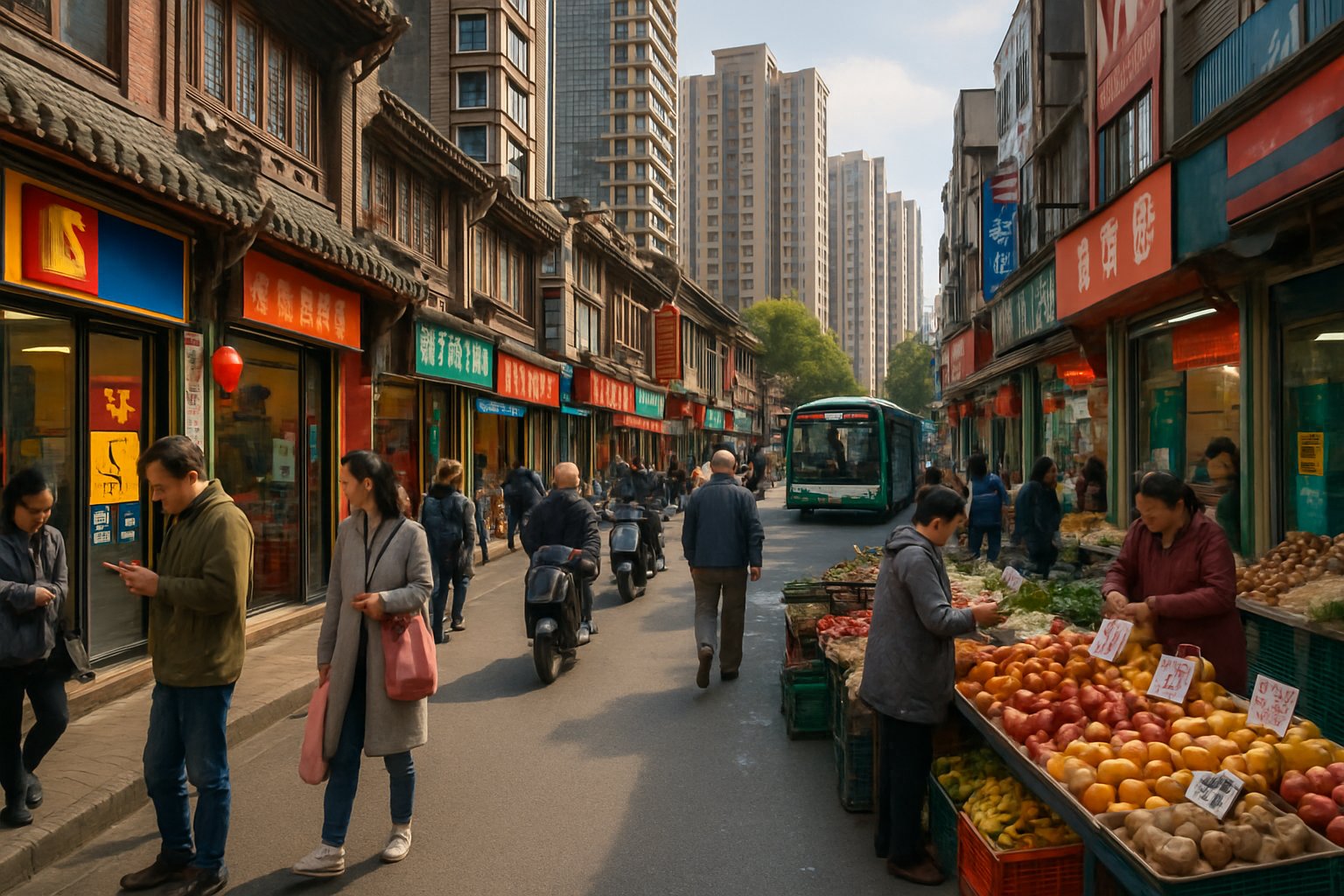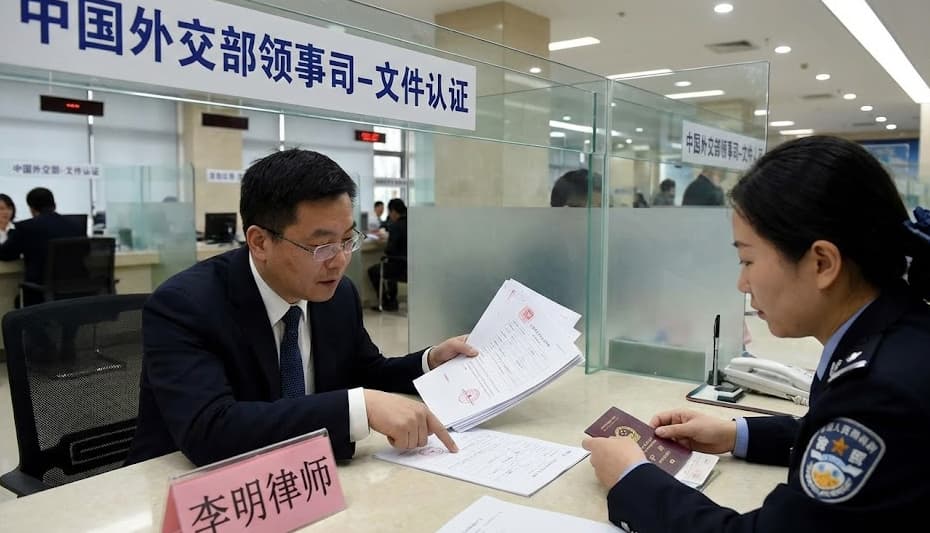If you want to get a handle on the China cost of living, you should know that, overall, life here is cheaper than in most countries. On average, the cost of living in China is about 1.5 times less expensive than the world average, making it a more affordable place for many people.
Living costs in China vary a lot depending on location and lifestyle, but overall it's cheaper than in most Western nations. A single person typically spends between ¥3,700 and ¥10,000 monthly (about $520–$1,400), while families of four usually pay ¥13,400–¥40,000 ($1,900–$5,600) each month. Big cities like Beijing and Shanghai are pricier—on par with Europe—while smaller cities are much more affordable.
Whether you're thinking about moving to big cities like Shanghai or Beijing or settling in smaller places like Chengdu, your expenses will jump around a lot depending on the location.
Your lifestyle and city choice shape your expenses more than anything else. If you plan to live in China, knowing what you’re likely to spend will make budgeting less of a headache.
China Cost of Living Overview

Living in China means your costs can swing a lot depending on your city and lifestyle. Basic things like food and transport are pretty cheap compared to many Western countries.
Housing, especially in big cities, can eat up a big chunk of your budget. That’s the trade-off for city life, I suppose.
How China Compares Globally & Vs US/UK – Affordability Index
China’s cost of living is much lower than in the US or the UK. On average, life here costs about 54.5% less than the US, and rent is around 74% cheaper than in the US.
Globally, China sits somewhere around 135th to 158th out of nearly 200 countries for cost of living. It’s definitely on the more affordable side.
Big cities like Beijing and Shanghai will drain your wallet faster, especially with rent or imported stuff. Still, daily things like food, transport, and utilities stay affordable. Your money just goes further here.
What an Average Person Spends Monthly in China
If you live alone, expect to spend about ¥3,940 (around $520) per month on basics, not including rent. For a family of four, it’s nearly ¥13,484 ($1,870) without rent.
Rent swings wildly—major cities charge the most, but even then, it’s usually less than in most Western cities. Utilities, internet, and public transport don’t break the bank. Internet speeds average about 170 Mbps, which is decent.
Inflation and interest rates stay on the low side, so your budget won’t get thrown off by sudden spikes. All in all, it’s easier to keep your monthly costs in check here than in pricier countries.
China City Costs: Tier‑1 Vs Tier‑2/3
Costs in China shift a lot depending on the city. The biggest cities mean higher rents and daily expenses, while smaller cities offer a break for your wallet. Your budget changes a lot based on where you land. That’s just how it goes here.
Beijing, Shanghai, Shenzhen Rent & Living Costs
In Beijing, Shanghai, and Shenzhen, rent usually takes the biggest bite out of your monthly budget. A one-bedroom in the city center might cost 5,000 to 8,000 RMB ($700-$1,100 USD) per month.
If you live outside the center, prices drop to around 3,000 to 5,000 RMB. Food and transport cost more in these cities too.
Eating out can run you 2 to 4 times more than in smaller cities. Public transport works well but adds about 200 to 300 RMB monthly for a metro pass.
Life here moves fast, which means you probably spend more on entertainment, dining, and convenience. Total living costs can easily go over 10,000 RMB ($1,400 USD) each month.
Renting in China means you’ll spend a chunk on housing. To stay protected, read: China Landlord Obligations: What Renters Need To Know.
Chengdu, Hangzhou, Xi’an – Cheaper City Breakdown
Chengdu, Hangzhou, and Xi’an are Tier-2 cities, and rents are much lower. A central one-bedroom apartment runs about 2,000 to 3,500 RMB ($280-$500 USD) monthly.
Daily expenses like food and transport stay cheaper too. Street food and local markets help keep costs down, and a metro pass is around 100 RMB per month.
Entertainment is more affordable but a bit more limited. Living here usually costs 40-60% less than in Beijing or Shanghai.
These cities are great if you want a comfortable life without crazy prices. The pace is slower, and people seem to know their neighbors better.
Monthly Cost Breakdown
Living costs in China depend on your city and lifestyle. Housing, food, utilities, and healthcare all come with their own price tags.
Let’s break down what you might spend each month so you can plan ahead without too many surprises.
Rent – City Centre Vs Outskirts Pricing
Rent usually tops your list of expenses. In Beijing or Shanghai, a one-bedroom in the city center often costs ¥8,000 to ¥12,000 per month.
Move to the outskirts, and you’re looking at ¥5,000 to ¥7,000 per month. Smaller cities or suburbs are cheaper still.
For context, rent in China is about 74% lower than in the US. When picking your spot, think about your commute and transport costs too.
We mentioned big-city rent can be $500–$1,100—but what about other places? For full details, read: How Much is Rent in China? A City-by-City Breakdown of Rental Costs.
Food – Groceries and Eating Out Cost Range
Groceries are affordable, especially if you stick to local produce. One person usually spends ¥1,000 to ¥1,500 a month, depending on eating habits.
Rice, veggies, and pork are cheap, but imported foods get pricey. Eating out? Street food or small restaurants can be as low as ¥15–¥30 per meal, while a mid-range restaurant is about ¥60–¥120 per person.
If you cook at home, you’ll save more than eating out all the time. Not everyone loves cooking, though, so your mileage may vary.
Utilities, Transport, Mobile & Data Costs
Utilities for a small apartment—electricity, water, gas—usually run ¥300 to ¥600 per month. Heating bumps up winter costs, especially up north.
Public transport is a bargain, with monthly passes at ¥200 to ¥250. Taxi rides start at ¥14, so short trips won’t hurt your budget.
Mobile data plans run between ¥100 and ¥200 per month, depending on your provider and how much data you burn through.
Healthcare, Schooling & Insurance Basics
Healthcare is reasonably priced but varies a lot between public and private. Expats usually buy international health insurance, which costs ¥800 to ¥2,000 monthly, depending on coverage.
Public schools are affordable and generally accessible. International schools, though, charge way more, often several thousand yuan each month.
If you’ve got kids or medical needs, budget for these extras. Insurance gives peace of mind, but it’s another monthly cost to factor in.
Living costs in China can change depending on where and how long you stay. To stay longer, read: China Residence Permit: Everything You Need to Know.
Income vs. Expenses

Knowing how your income stacks up against expenses is key if you’re thinking about life in China. Salaries swing a lot between cities and sectors, so your lifestyle depends on where you work and what you do.
Average Salaries Urban China – Private & Public Sector
In cities like Beijing, Shanghai, and Shenzhen, average monthly pay falls between 4,000 and 10,000 RMB (about $570 to $1,430).
Private sector jobs, especially in tech or multinationals, can go higher—sometimes over 15,000 RMB ($2,140). Public sector salaries usually come in lower, around 4,000 to 7,000 RMB ($570 to $1,000).
Your field and experience matter a lot. Finance, IT, and international business pay more than education or government gigs.
Wages drop 30-50% in smaller cities, but so do costs for rent and daily needs. It’s a trade-off, really.
Minimum Wage, Take‑Home Pay & Cost Coverage
Minimum wages shift by city, but most range from 1,500 to 2,500 RMB monthly ($215 to $360). That’ll cover food and public transport, but not much else in the big cities.
After taxes and social insurance, you keep about 80-85% of your gross pay. Most urban workers can cover about 1.2 to 1.3 months’ worth of living expenses with their salary.
If you want a bit of comfort or hope to save, you’ll need a higher salary or to live somewhere cheaper.
Expat & Local Budget Tips
Living in China means running into some costs you might not expect and figuring out how to save day-to-day. Knowing these tricks can help you keep your budget in check.
Hidden Costs: Deposits, Visa, Settling-In
When you rent, landlords usually ask for a security deposit—one or two months’ rent upfront. You’ll get it back, but it ties up your cash at first.
Visas come with fees for both the initial application and any extensions or renewals. Depending on your visa, you might need to pay for a residence permit or health check too.
Moving in means extra costs: buying furniture, paying utility deposits, or setting up internet. Sometimes landlords want you to handle these right away.
Planning for these upfront costs helps avoid money stress your first few months.
Smart Savings: Markets, Passes, Apps
Shopping at local markets instead of supermarkets can save you 20-40% on fresh fruits, veggies, and meat. Prices are lower, and you can usually negotiate for even better deals.
For transport, grab a public transit card or monthly pass. It's almost always cheaper than paying for each ride.
Many cities have apps that hand out discounts or help you keep track of your spending. Download apps like Didi for cheap rides, or Meituan for food deals.
These tools help you find affordable options and dodge overspending. Honestly, a little effort here can go a long way.
Trends & Outlook
China's cost of living keeps shifting, especially in areas like housing and inflation. These changes hit your daily expenses, rent, and long-term budget—especially if you're thinking about living or investing there.
Inflation, Housing Trends & Rental Bubble
Inflation in China has stayed pretty moderate, but it's still nudging up prices for food and utilities. You'll probably notice costs rising, though how much depends on the region.
Urban areas like Shanghai and Beijing feel inflation more because demand is so high. Housing costs, in particular, are a big deal.
In cities like Shenzhen and Guangzhou, prices can swing a lot. Some experts even warn about a rental bubble, with rents climbing faster than incomes.
If you're in a tier-1 city, this could really squeeze your housing budget. But in smaller or less developed cities, housing stays a lot more affordable.
Your cost of living will look pretty different depending on where you decide to settle down. That's just how it goes in China.
Forecast for China Cost of Living in 2025+
Expect regional differences in living costs to stick around. Tier-1 cities will probably keep seeing steady inflation and rising housing prices, thanks to urbanization and economic growth.
You might want to brace for higher monthly bills if you pick one of these hotspots. On the flip side, second- and third-tier cities could offer more stable, lower costs.
Those places might be the ticket if you're on a budget or just want to avoid high-inflation areas. Cost of living indices suggest China will remain below the global average for expenses, but growth in consumer goods and housing will keep pushing up the baseline.
Transportation and utilities should stay fairly steady, but food prices might creep up a bit. It's a mixed bag, honestly.
- Urban housing prices and rents may rise faster than inflation
- Smaller cities likely offer more affordable living options
- Overall costs expected to grow but remain below many Western countries
Final Thoughts
China’s cost of living is flexible: big cities cost more, smaller ones less. Singles often spend $500–$1,000 monthly; families range from $2,000–$3,500 depending on where and how you live. What matters most? Housing, food, transport, and lifestyle choices.
Knowing the numbers helps you plan a budget that fits your lifestyle. Whether you’re a student, expat, or retiree, China can be affordable with the right choices. Use our city guide, salary insights, and money-saving tips to get the most value.
Ready to budget smart? Let China Legal Experts help you navigate—with tailored advice and expert support. Contact China Legal Experts today!
If China’s cost of living suits you and you’re here long-term, permanent residence could be next. Read: Permanent Residence in China Application: Requirements & Process.
Frequently Asked Questions
Is it expensive to live in China?
No, China is generally affordable. For individuals, monthly expenses usually land somewhere between $1,400 and $2,100 USD, depending on the city.
Smaller cities are much cheaper than big ones like Shanghai or Beijing. Makes sense, right?
How does the cost of living in China compare to the United States?
Living in China costs less than in the US. It can be nearly half the price or even less, especially for housing and food.
Utilities and transportation are also cheaper in China than in most US cities. That's a big plus for a lot of people.
How much USD to live comfortably in China?
You'll probably need around $1,500 to $2,000 USD a month for a comfortable lifestyle as a single person in a major city. For a family of four, monthly costs can hit about $5,600 USD, but it really depends on how you live.
How much is rent in China in USD?
Rent's all over the place. In big cities like Shanghai, a one-bedroom apartment downtown can run between $700 and $1,200 USD per month.
In smaller cities, you might pay as little as $300 to $500 USD. It really depends on where you want to be.
How much is a 3 bedroom house in China?
A 3-bedroom apartment or house in a big city usually costs around $1,500 to $3,000 USD a month, depending on location and quality. Outside the big cities, the price can drop to $800 to $1,200 USD.
What is the cost of basic food items, like a gallon of milk, in China per month?
Basic food prices in China are pretty low. You'll pay around $3 to $4 USD for a gallon of milk.
Monthly groceries for one person usually cost somewhere between $150 and $300 USD. Of course, it depends on your diet and what you like to eat.
Fresh produce and local food tend to stay affordable, which is a relief if you love cooking at home.
Subscribe to receive updates
Subscribe to receive the latest blog posts to your inbox every week.






